Oct20_Thursday
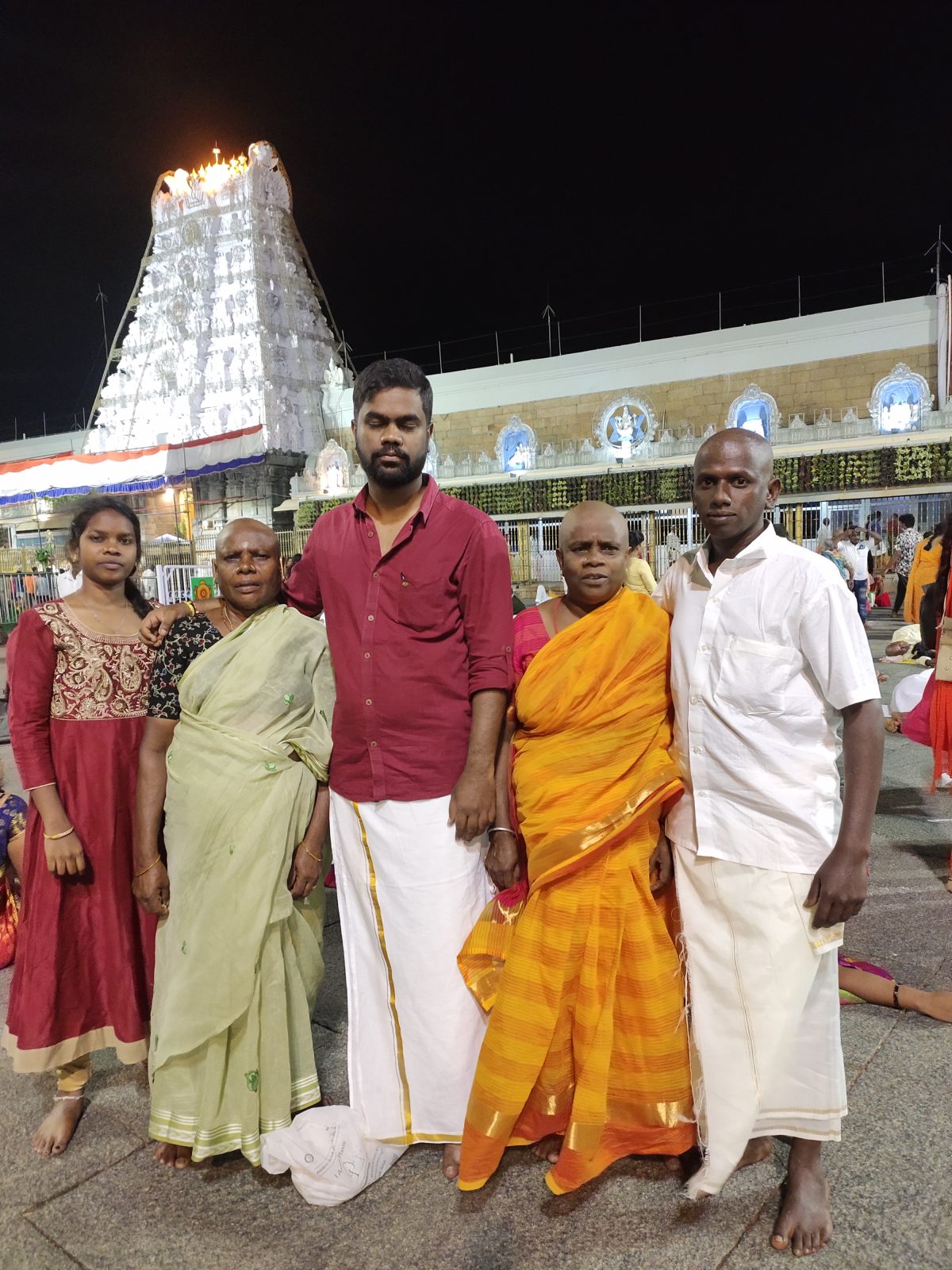

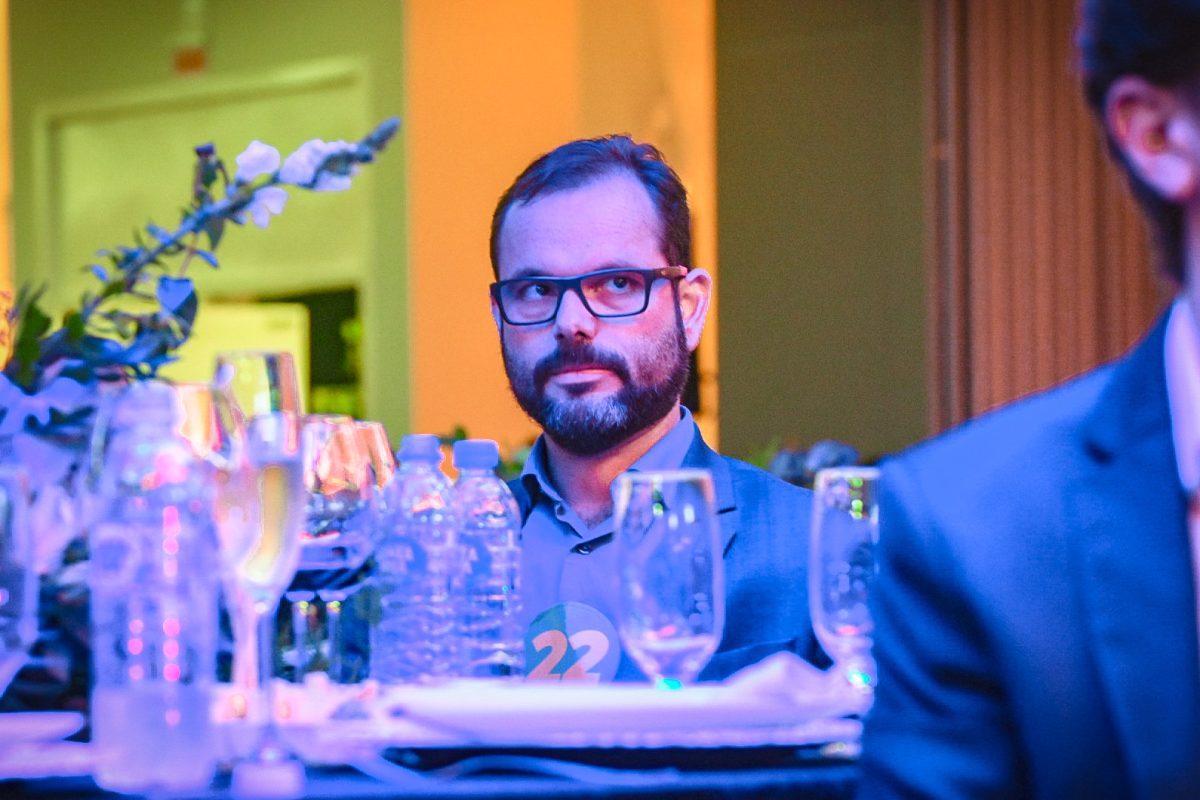
<h2><a style= »color: #04619d; text-decoration: none; » href= »At »>https://www.ncronline.org/opinion/ncr-voices/sacred-heart-university-co… Sacred Heart University conference, theologians reengage with Vatican II</a></h2><div style= »font-weight: bold; font-size: 15px; font-family: Arial, sans-serif; » class= »byline »>by Michael Sean Winters</div><div style= »font-size: 19px; font-family: ‘Georgia’, serif; »><p>A wonderful conference at Sacred Heart University in Connecticut is the latest in academic reengagement with Vatican II. Columnist Michael Sean Winters hopes to see more theologians seize that momentum.</p>
</div><p><a style= »color: #04619d; » href= »Read »>https://www.ncronline.org/opinion/ncr-voices/sacred-heart-university-co… more here »</a></p><h2><a style= »color: #04619d; text-decoration: none; » href= »Links: »>https://www.ncronline.org/opinion/ncr-voices/links-latino-voters-nation… Latino voters; National Review on Vatican II; how war in Ukraine will end</a></h2><div style= »font-weight: bold; font-size: 15px; font-family: Arial, sans-serif; » class= »byline »>by Michael Sean Winters</div><div style= »font-size: 19px; font-family: ‘Georgia’, serif; »><p>The National Review’s column on the 60th anniversary of Vatican II is worse than Ross Douthat’s, says columnist Michael Sean Winters.</p>
</div><p><a style= »color: #04619d; » href= »Read »>https://www.ncronline.org/opinion/ncr-voices/links-latino-voters-nation… more here »</a></p>

<div style= »font-size: 19px; font-family: ‘Georgia’, serif; »><p><strong>Welcome to Tuesday. A community in Honduras is defending a life-giving river from destructive pollution by an iron oxide mine in the protected Carlos Escaleras National Park. And an NCR commentator says to truly combat throwaway culture, Catholics must reckon with long COVID, not only as an economic or social issue, but also as a « life issue » deserving the church’s attention.</strong></p>
<hr />
<h2><strong><a href= »‘We »>https://www.ncronline.org/node/219051″>’We cannot exist if we lose the water’: In Honduras, a community resists a mine polluting the Río Guapinol</a></strong></h2>
<p>The Río Guapinol that streams through the Bajo Aguán valley in northern Honduras has long been a source of drinking, bathing, cleaning, irrigation and cooking water for the surrounding community in Tocoa.</p>
<p>In the last few years, the river has also provided an education: how to resist an international mining operation that they say contaminates the river in the name of development; how to confront a seemingly compromised justice system when that resistance goes awry; and — for the women in particular — how to become leaders of a movement upon the indefinite imprisonment of their husbands and sons.</p>
<p>Vilma Cruz raised her five children using the river, including a son who wound up spending almost two and a half years in jail for protesting the mining as part of the Guapinol 8, a group whose 2019 arrests and long detentions drew international outrage. « We don’t feel at peace because our water has been endangered, » she said. « Now, when I go to the river, I feel my chest swell, like I’m not free. »</p>
<p><a href= »Read »>https://www.ncronline.org/node/219051″>Read more at EarthBeat</a>.</p>
<p><strong>More background:</strong></p>
<ul>
<li aria-level= »1″>Communities affected by mining — and church people working with them — draw strength from spiritualties that center on protecting what Pope Francis calls « our common home, » <a href= »according »>https://www.ncronline.org/node/206007″>according to members of the Churches and Mining Network</a>.</li>
</ul>
<hr />
<h2><strong><a href= »To »>https://www.ncronline.org/node/219036″>To counter a throwaway culture, Catholics must reckon with long COVID</a></strong></h2>
<p>We are fast approaching the third year of the COVID-19 pandemic, Céire Kealty, a doctoral student in the Department of Theology and Religious Studies at Villanova University reminds us. </p>
<p> »Despite our best efforts to feign normalcy, things are noticeably different, » Kealty writes. « Our local bar might be missing some regulars, or we may see less of that one coworker. We might feel these changes mostly profoundly at church, noting the absence of once-familiar faces in the pews. » </p>
<p>Kealty goes on to point out that many people are suffering from « long COVID, » or continued symptoms from the virus that are present even months after the original illness. « As Catholics, we must resist the all-too-easy impulse to minimize, disregard and distance ourselves from the startling reality of long COVID for the sake of comfort and convenience, » she writes. « We must be present to ailing long haulers, acknowledge their suffering, and pledge to advocate for and alongside them. »</p>
<p><a href= »Read »>https://www.ncronline.org/node/219036″>Read more of this commentary here</a>.</p>
<hr />
<h2><strong>More headlines</strong></h2>
<ul>
<li aria-level= »1″>St. Katharine Drexel Catholic Church in Alton, New Hampshire, <a href= »recently »>https://www.ncronline.org/node/219021″>recently celebrated a Mass and dedicated a memorial in honor of the late parishioner James Foley</a>, a freelance journalist who was killed in Syria in 2014 by fighters with the so-called Islamic State.</li>
</ul>
<hr />
<h2><strong>Final thoughts</strong></h2>
<p>When you click on a link above, you will see the newly redesigned websites of National Catholic Reporter, EarthBeat and Global Sisters Report. I appreciate your patience and understanding as we work out inevitable kinks over the next few weeks. If you’d like to provide feedback or have a question, you can do so at <a href= »mailto:redesign@ncronline.org »>redesign@ncronline.org</a>. </p>
<p>Until Wednesday,</p>
<p>Stephanie Yeagle<br />
NCR Managing Editor<br />
<a href= »mailto:syeagle@ncronline.org »>syeagle@ncronline.org</a><br />
Twitter: <a href= »@ncrSLY
https://twitter.com/ncrSLY »>@ncrSLY</a></p>
</div>


« Frappez et la porte s’ouvrira » (Luc 11:10).
Pourquoi devrions-nous prier? Cela influence-t-il vraiment l’issue d’une situation qui nous préoccupe? Cela change-t-il quelque chose dans la série de causes et d’effets qui sous-tendent la réalité physique?
Jésus nous encourage à prier avec de nombreuses paraboles et images qui affirment la présence de Dieu dans nos vies. Une relation intime et confiante avec Dieu devrait nous rassurer que, quelle que soit la façon dont les choses fonctionnent, les desseins aimants de Dieu sont toujours à l’œuvre, coopérant toujours avec nos efforts pour apporter le bien.
L’Évangile d’aujourd’hui compare la persévérance et la logique humaines à la volonté de Dieu de bénir quiconque demande de l’aide. Un homme réveille son voisin au milieu de la nuit pour obtenir du pain pour un invité surprise chez lui. Le maître de maison réticent et irrité lui donne ce qu’il demande à cause de sa persévérance. Le point que fait Jésus est combien plus Dieu nous entendra-t-il si nous demandons, cherchons et frappons. Si les parents en savent assez pour ne pas donner de scorpions et de serpents à leurs enfants qui demandent des œufs et du pain, notre Père aimant ne donnera-t-il pas le Saint-Esprit à ceux qui le demandent?
Prier, c’est participer au désir de Dieu pour le bien dans nos vies. Si la prière ne change pas Dieu, elle nous change souvent. Si la prière ne consiste pas simplement à présenter à Dieu une liste de nos désirs et de nos souhaits d’être automatiquement, même miraculeusement, satisfaits, elle nous engage en fait à faire notre part pour répondre aux besoins humains. Lorsque nous prions, nous sommes inspirés et motivés à agir. Grace se joint à nos efforts et à notre persévérance pour trouver le résultat qui est le meilleur pour nous et les autres.
Avons-nous suffisamment confiance en notre Père pour lui apporter tous nos besoins dans la prière? Si nous le faisons, non seulement notre relation avec Dieu s’approfondira, mais nous apprendrons également à être des instruments du dessein divin, les mains, les pieds, les cœurs et les visages qui révèlent Dieu aux autres dans le besoin. C’est la joie de l’Évangile.
Publicité
Publicité
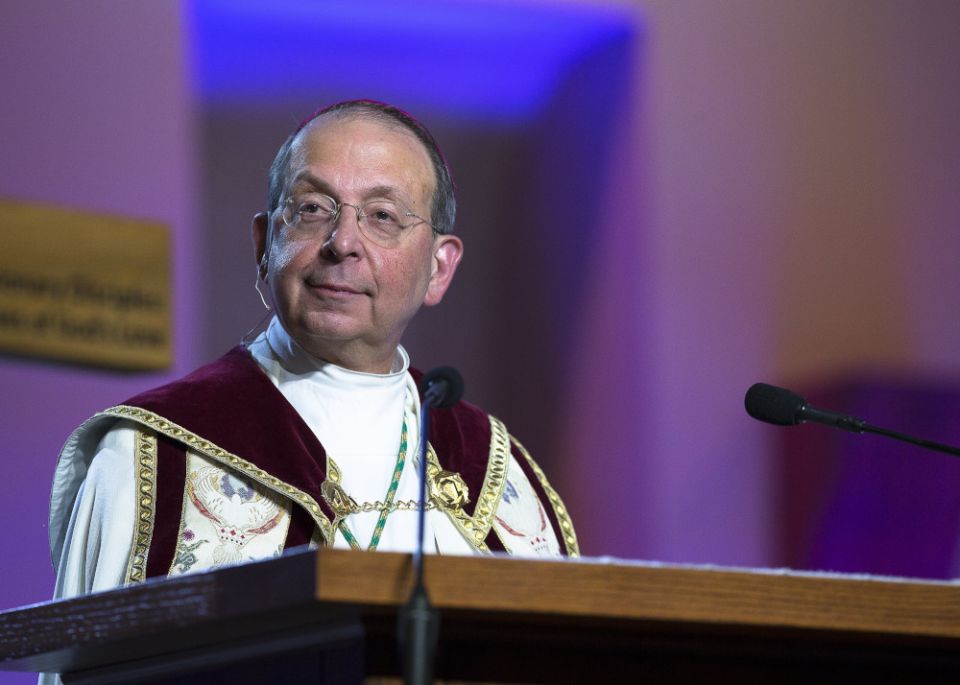

Washington — The chairman of the U.S. bishops’ pro-life committee called for a « radical solidarity » with pregnant women to protect and support them and their unborn child.
« In the post-Roe world, we must act in radical solidarity with the pregnant woman and her child, as we work and pray for the day when abortion is unthinkable, » said Archbishop William Lori of Baltimore, chairman of the U.S. Conference of Catholic Bishops’ Committee on Pro-Life Activities.
The archbishop made the remarks in a statement released late Oct. 4 to mark the 100 days since the U.S. Supreme Court overturned Roe v. Wade in its Dobbs ruling.
Mothers should « be protected and supported, » he said, « and we all have a responsibility to stand with mothers in need and provide the material and emotional support necessary to allow mothers, children and families to live in dignity. »
Lori also issued the statement to reiterate Catholic teaching on life as a response to recent public comments from people in public life « who distort the Catholic Church’s teaching, » said a USCCB news release.
« The Catholic Church recognizes that all people, born and unborn, have been created in the image and likeness of God, and therefore have inherent dignity, and the right to life, » Lori said. « When a woman is carrying a child, both mother and child are valued and should be protected, and the life of one should not be set against the life of another. »
He added, « The goal is always to save life, never to intentionally destroy life. The church seeks the protection of all unborn children, this includes the innocent child conceived in rape or incest. »
Neither Lori nor the news release named any specific public officials’ comments on abortion and the Catholic Church, but in remarks Sept. 22, President Joe Biden claimed that a bill sponsored by Sen. Lindsey Graham, R-S.C., to ban abortion after 15 weeks nationwide is more strict than what the church says about abortion.
Speaking at a Democratic National Committee fundraiser in New York, Biden said Graham and others are « talking about how they’re gonna, you know, make sure that Roe is forever gone and Dobbs becomes a national law. »
He said the senator’s bill has « no exceptions. » « I happen to be a practicing Roman Catholic, my church doesn’t even make that argument, » Biden said.
However, the « Protecting Pain-Capable Unborn Children from Late-Term Abortions Act, » as the bill is called, does include exceptions for rape, incest or to save the life of the mother. The measure also has been introduced in the House.
« Whereas the church always seeks the protection of all unborn children, it is licit to support legislation that falls short of this goal, if it advances protections and limits harm, » said Lori said in his statement.
He quoted Section 73 of St. John Paul II’s 1995 encyclical on the value and inviolability of human life, Evangelium Vitae: « This does not in fact represent an illicit cooperation with an unjust law, but rather a legitimate and proper attempt to limit its evil aspects. »
« The USCCB supports legislation that seeks to limit the harm of abortion, including some legislation that includes exceptions, » Lori said. « We will continue to pray and work for the day when all human life is welcomed in love and protected by law. »
Advertisement
Advertisement
The Supreme Court’s June 24 decision overturning Roe v. Wade came in a challenge to a Mississippi law banning abortion after 15 weeks. The case was Dobbs v. Jackson Women’s Health Organization.
The court affirmed the law 6-3 and also voted 5-4 to overturn the 1973 Roe ruling, which legalized abortion nationwide, and 1992’s Casey v. Planned Parenthood ruling, which affirmed Roe. The ruling returned the issue of abortion to the states.
In a Sept. 21 statement he issued for October as Respect Life Month, Lori said the court’s reversal of Roe « is, without question, an answer to prayer, » but in a post-Roe world, « Catholics must now work together for another, even deeper paradigm shift. »
« We must move beyond a paradigm shift in the law in order to help the people of our nation better see who we can be as a nation by truly understanding what we owe to one another as members of the same human family, » he said.
« To build a world in which all are welcome, » he said, Catholics « must heed » the words of St. Teresa of Kolkata « and remember ‘that we belong to one another.' »


Vatican City — A tourist who toppled two ancient Roman busts in the Vatican Museums has been handed over to Italian police, the Vatican said.
The vandalism occurred Oct. 5 when the tourist, identified by several Italian media outlets as an American man, threw down two marble busts from their pedestals in the museums’ Chiaramonti gallery.
Matteo Bruni, director of the Vatican press office, told reporters that the man who « knocked down the statues was stopped by Vatican gendarmerie and handed over to Italian authorities. »
Advertisement
Advertisement
The Italian newspaper Il Messaggero reported that the man knocked down the statues after his request to meet Pope Francis was denied. After vandalizing the busts, he was stopped by museum staff before being detained by the Vatican police.
According to the Reuters news agency, a source at the Vatican Museums said the man, who is believed to be in his 50s, « behaved strangely » before toppling the busts.
The two ancient Roman busts were not severely damaged and were taken to the Vatican Museums’ lab for repair, Reuters reported.
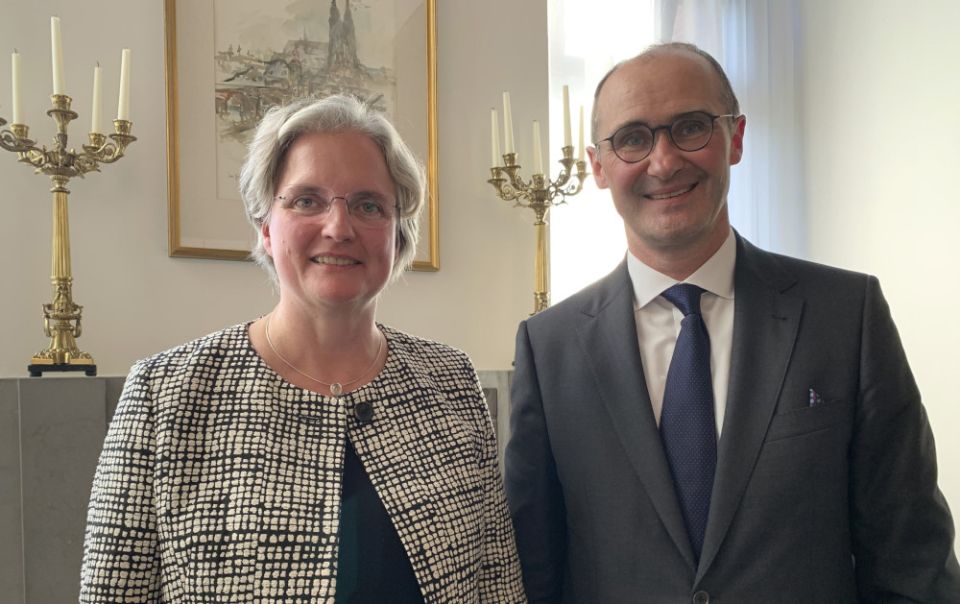

Rome — German Catholics involved in the Synodal Path are convinced the church must address the « systemic causes » of the clerical sexual abuse scandal and that will require change, said Charlotte Kreuter-Kirchhof, a member of the German Synodal Assembly.
And while some of the assembly’s proposed changes sound radical to some people — with the harshest critics even warning that the Synodal Path could lead to schism — Kreuter-Kirchhof said, « We are members of the Roman Catholic Church, and we will stay members of the Roman Catholic Church. »
Kreuter-Kirchhof, a professor of law and member of the Vatican Council for the Economy, spoke about the Synodal Path at a conference Oct. 4 at the German Embassy to the Holy See.
The fourth assembly of the Synodal Path was in September. The fifth and final meeting is scheduled for March.
In the wake of the clerical abuse scandal and with the release of a major study of its causes, the German bishops’ conference and the Central Committee of German Catholics launched the Synodal Path in 2019. The process began with forums to discuss issues in the four areas the study identified as containing the « systemic causes » of sexual abuse and its cover-up: the exercise of power in the church; sexual morality; priestly existence; and the role of women in the church.
« Abuse has brought endless suffering to the victims, » Kreuter-Kirchhof said, and « the church has lost an infinite amount of trust. »
Some 360,000 people officially left the church in Germany in 2021, and the number seems set to be even higher for 2022, she said.
« The only way out is to address the systemic causes » of abuse, she said.
The German bishops are scheduled to make their « ad limina » visits to the Vatican Nov. 14-19, and addressing questions and doubts about the Synodal Path is expected to be a major topic. In fact, the officers of the bishops’ conference were at the Vatican in early October to finalize plans for the « ad limina, » which is expected to include a joint meeting with Pope Francis and the heads of major Vatican offices to discuss the Synodal Path.
Advertisement
Advertisement
In her presentation, Kreuter-Kirchhof said, « It is important to note that this is not a process taking place only in Germany, » since a similar process of prayer, discussion and discernment in preparation for the world Synod of Bishops in 2023 is bringing up many of the same concerns and hopes for change around the globe.
The four forums of the Synodal Path presented their work at meetings of the Synodal Assembly, with proposals for documents to be discussed and amended and then presented a second time for more discussion and a vote. To pass, the documents must be approved by two-thirds of the German bishops and two-thirds of the laity, priests and religious in the assembly. The recommendations in some approved texts can be adopted without approval from Rome, but others must be referred to the Vatican before implementation.
Documents approved by the assembly, meeting for the fourth time in September, included those regarding the position of women and trans people in the church, gay priests and the future national leadership structure of the Catholic Church, reported the German Catholic news agency KNA. It said all texts involving changes to church doctrine were formulated as proposals for consideration by the pope and not as independent dogmatic changes by the German church.
However, the 30-page « foundational » text on sexuality, calling for a new approach to sexual ethics by the church, failed to garner the approval of two-thirds of the bishops.
With the bishops’ vote, Kreuter-Kirchhof said, « the whole Synodal Path came close to a failure, » not primarily because only 61% of the bishops approved it, but because most of the bishops who voted against it « never disclosed their concerns at any point prior to the vote, » whether in the drafting forum, during the discussion and amending of the first draft or in the discussion before the final vote.
« What did we learn from this crisis? » she asked. « We learned that if the bishops turn away from the people of God or if the people of God are not with the bishops, the church suffers. »
« The synodal church is the place of common faith, of listening to one another, of discerning together and of common decision, » she said.
The Catholic Church is a hierarchical church, and bishops legitimately have a special responsibility, but they cannot operate in a vacuum, she said. « After the crisis » at the September assembly, « synodality worked better than before once the bishops started speaking up. »
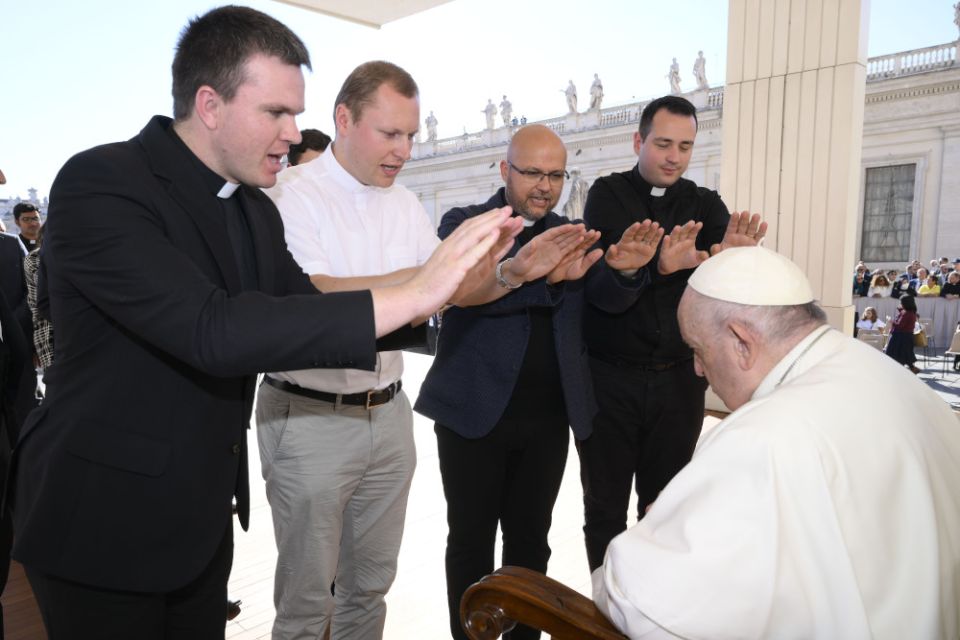

Vatican City — To know oneself is a gift and a grace that allows Christians to properly discern between feelings and convictions, Pope Francis said.
During his weekly general audience in St. Peter’s Square Oct. 5, the pope said that knowing oneself requires « patient soul-searching » and the awareness of one’s « way of acting, of the feelings that dwell within us. »
« It also requires that we distinguish between emotions and spiritual faculties, » he said. « ‘I feel’ is not the same as ‘I am convinced.’ ‘I feel like’ is not the same as ‘I want.’ Thus, we come to recognize that the view we have of ourselves and of reality is at times somewhat distorted. To realize this is a grace! »
Continuing his series of talks about discernment, the pope reflected on the element of self-knowledge that is crucial in discovering what one truly wants or needs in his or her life.
The pope explained that at times it is difficult to discern the path for one’s life « because we do not know ourselves well enough. »
« You have heard many times: ‘But that person, why doesn’t he or she sort out their life?' » he said departing from his prepared remarks. It « happens to us too that when we do not know clearly what we want, we do not know ourselves well. »
Spiritual doubts and vocational crises, he added, are often caused by « an insufficient dialogue between our religious life and our human, cognitive and affective dimension. »
Furthermore, « forgetting God’s presence » in one’s life goes « hand-in-hand with ignorance of ourselves, » he said.
Advertisement
Advertisement
Francis said that much like computer programs requiring a password to access important and personal information, the spiritual life also « has its passwords, » words that touch one’s heart in a particularly powerful way.
However, he warned, the devil also « knows these passwords well. »
« Temptation does not necessarily suggest bad things, but often haphazard things, presented with excessive importance, » the pope explained. « In this way, it hypnotizes us with the attraction that these things stir in us, things that are beautiful but illusory, that cannot deliver what they promise and therefore leave us in the end with a sense of emptiness and sadness. »
That sadness, he said, is an indication that « we have embarked on a path that was not right. »
Francis said Christians need to « know the passwords of our heart » to protect themselves from external manipulations and distinguish what is truly important from « current fads or flashy, superficial slogans. »
He also encouraged Christians to make « a general examination of conscience » each day in prayer to reflect on « what happened in my heart in this day » and « learn to note in our evaluations and choices what we give most importance to, what we are looking for and why, and what we eventually find. »
« Prayer and self-knowledge enable us to grow in freedom, » the pope said. « This is (what it means) to grow in freedom! They are basic elements of Christian existence, precious elements for finding one’s place in life. »
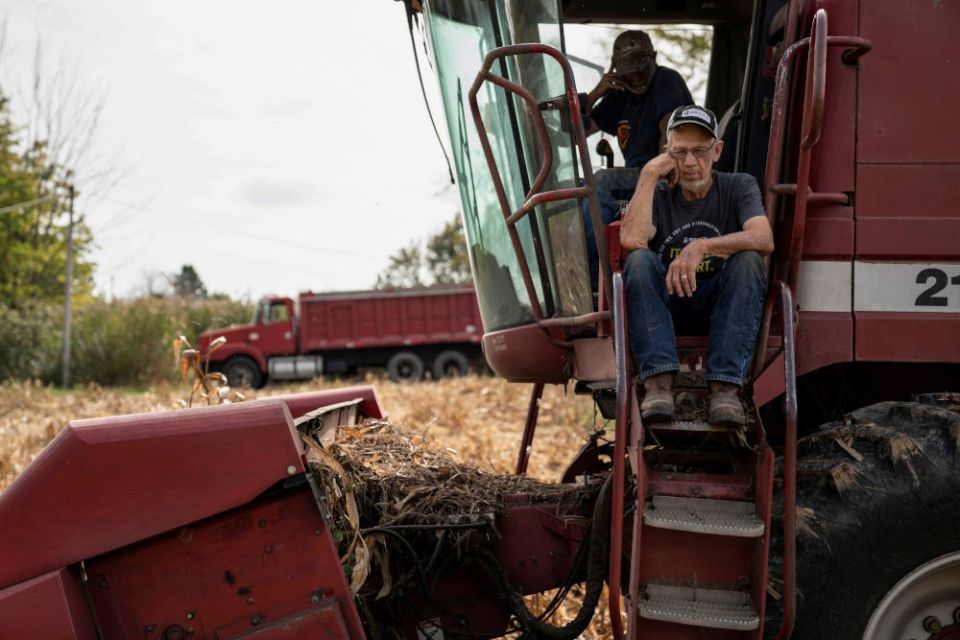

Washington — The current farm bill doesn’t expire until 2023, yet already advocates are lining up their arguments to assemble the kind of farm bill they want to see next year.
In some circles, advocates were probably strategizing about the 2023 farm bill not long after the current version was signed into law in 2018.
The farm bill is like a car. A century ago, the bill set policy for farmers and ranchers, while Ford still offered its Model T in any color — so long as it was black.
Today, automobiles are still with us but they are radically different, as they are adorned with lots of lights, safety equipment, fatter tires, pollution control devices, computer assists, stereo sound and even electric engines to replace the internal combustion engines that have dominated for the past century.
Likewise with the farm bill. While its character is essentially the same, it’s an altogether different look. Some now call it a « farm and food » bill, not always in that order, or a « farm and food and energy » bill.
« The 2018 bill was 807 pages long, » said James Ennis, executive director of Catholic Rural Life, based in St. Paul, Minnesota. He added that about three-fourths of the funding included in the bill goes to nonrural purposes.
Ennis said the 2018 farm bill had key gains for farmers. One example was a conservation stewardship program to help farmers and ranchers conserve and care for the land. He said he hopes to see « robust gains » in funding for that initiative in the 2023 farm bill.
While Ennis said he did not expect to see any major reductions in programs or funding in the 2023 version, « I hope to see some more expanded and enhanced disaster programs for farmers and ranchers to bounce back quickly from severe weather events. We’ve had droughts in parts of the country that have negatively impacted farmers. »
Ennis voiced his expectation that the farm bill will have enough incentives in it to keep farmers « farming far into the future by investing in the number of farmers so that we can continue to have young farmers coming into agriculture and agriculture production, so those investments are really key. »
Regardless of which party is control of either chamber of Congress following the midterm elections in November, Ennis said another item he wants to see is « continued investment in regional food systems » that focus on value-added producer grants. « We want to see continued investments, » he said, « so that farmers can tap into the local markets. »
Despite the lack of complaints about the 2018 farm bill, it hasn’t exactly been a rosy four years for farmers. The coronavirus pandemic did a number on rural life as it did city life — drought and other weather not conducive to farming struck some regions of the country; the war in Ukraine cut off an important supply of fertilizer for fields; and for famers, like for everyone else, inflation has been stubborn.
« Inflation has increased prices for fuel and inputs for farmers and ranchers, » Ennis told Catholic News Service in a Sept. 28 phone interview. « It’s putting a lot more pressure on them. They are facing some more headwinds than they were in 2018. »
Advertisement
Advertisement
Challenges aren’t limited just to farmers, as spelled out during a Sept. 21 program at the Capitol, « A Catholic Approach to Hunger, Nutrition and the Farm Bill. »
The program, jointly sponsored by Catholic Relief Services and the U.S. Conference of Catholic Bishops, featured the voices of people who minister on the front lines with desperately hungry people both in the United States and throughout the world.
Sara Lindsay, chief program officer for Catholic Charities West Virginia — the largest social service agency in the state — said children there have a higher rate of developmental delays due to nutritional deficits.
West Virginia, Lindsay added, is first in drug overdose deaths and accidental deaths, second in cancer-related deaths due to coal and tobacco use, eighth in suicides and last in life expectancy.
Some people in West Virginia are so poor — it’s the most rural state in the U.S. — « they can’t afford a vehicle or afford the gas to run it, » Lindsay said. « People will wait to go to the pantry for a day they’re going into town anyway. »
West Virginia has food deserts, where fresh food cannot be purchased. « It’s impossible to teach your kids to eat salads when the nearest grocery store is more than a county away, » she noted.
Still, Lindsay said, West Virginia is « home to some of the hardest working and resilient people you’ll ever meet. » Catholic Charities, beyond distributing food at 15 pantries statewide, teaches people how to can fruits and vegetables — and how to bury them in their yard to preserve them even longer.
Farmers in some parts of the world have been devastated by drought, according to Dina Brick, a CRS senior technical adviser for food security and markets. Brick said Sept. 21 a famine declaration for Somalia was expected « any day now, » while delayed rainfall has damaged farmers’ livelihoods in neighboring Ethiopia. One farmer said his acres’ yield « you could put into a sack, » Brick said.
International food assistance programs found in the farm bill « protect the dignity of every living human person, » Brick said at the forum.
The funds found in the farm bill « allowed us to provide cash transfers to provide food in the local market, » she added, when food shipped from the United States was « no longer safe, easy or appropriate. » She added, « It’s important to fund long-term resilience programs so people are not stuck in back-to-back crises. »
Brick said, « Imagine deciding which of your children eat, or whether to leave your home in search of food. Those are decision they have to make every day — and we have to make decisions, too. »
During a question-and-answer session following her remarks, Brick said, « Climate is one of the main challenges of our times. »
« In addition to meeting emergency needs right now, another critical part of this, which the farm bill allows and it needs to continue, » is to foster « these investments that once were emergency programs, » she continued, but to really do so « with an eye for resilience — looking at the whole food system, from producer to consumer, the environment, all the different parts that go into healthy food systems. »
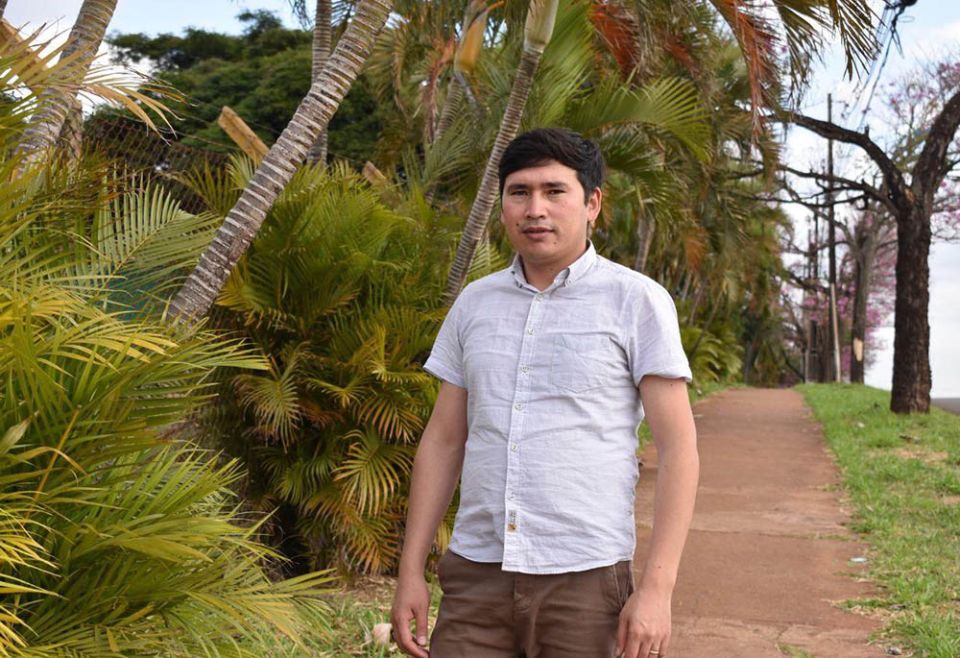

Sao Paulo — As one of the few countries in the world issuing humanitarian visas for Afghans since the Taliban took control of Kabul in 2021, Brazil has been welcoming hundreds of refugees every month, many of them members of the Hazara people, a persecuted ethnic Afghan minority.
The possibility of obtaining a visa has been drawing thousands of Afghans to the Brazilian embassies in Tehran, Iran; Ankara, Turkey; Islamabad; and Moscow. It is seen by people in need as a great chance to rebuild their lives elsewhere.
But the potential visa is not accompanied by any national program to give refugees a place to live, financial aid or a job. The Brazilian Catholic Church has been among a number of entities stepping into the breach to help refugees secure basic needs.
« Since the Taliban took control, we warned the national council for refugees that something had to be done. The only reaction of the government was to concede the humanitarian visa, » Fr. Marcelo Maróstica, director of the São Paulo Archdiocese’s Caritas charity network, told NCR.
Brazil has issued visas for about 6,000 Afghans, with about half of that number arriving in the country. Since February, the weekly number of arrivals has been growing — and nobody in the South American country seems to be really prepared to properly deal with them.
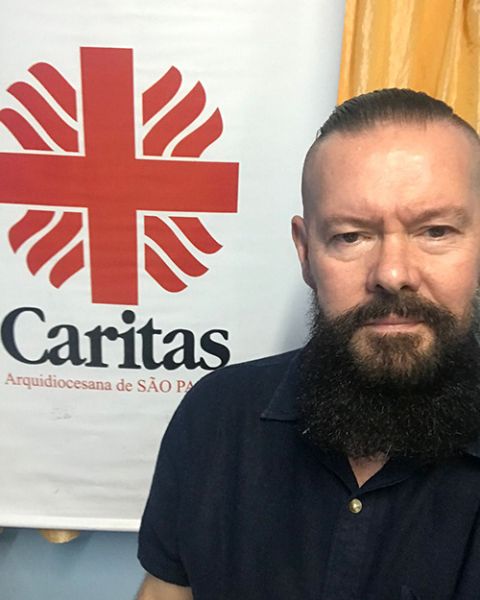
« We have been helping them to regularize their documents, we provide health care assistance, and we have a welcome center where they can stay for a few weeks until the government finds a more stable shelter for them. But the country should really offer more, » said Marostica.
A crisis erupted in September, when Brazil’s lack of infrastructure for incoming Afghans led to some 100 refugees establishing a camp at the São Paulo international airport. The situation spurred outrage among Brazilians and prompted authorities from the judiciary, the São Paulo city government and the federal government to coordinate help, taking the refugees to a hotel.
Social worker Rafaela Barroso, who volunteers at a ministry program for migrants at a parish in the city of São José do Rio Preto, in São Paulo state, told NCR she has helped more than 100 Afghans to obtain a Brazilian visa and get into the country since March. She said that most of them are unemployed and living at hotels, paid for with savings that are dwindling.
« Among them there are journalists, prosecutors, engineers. But there are no jobs for them, » she said.
She added, « Some of them have been working for a halal slaughterhouse, but it is hard work and salaries are low, so many end up giving up. »
Esmatullah Hassanzada, a 31-year-old software engineer, is one of the Afghans assisted by Barroso. He told NCR he has been in Brazil with his brother for a month and has yet to get a single job interview.
Hassanzada and his brother are Hazaras, an ethnic group that has suffered oppression from the Taliban, which is largely made up of ethnic Pashtuns. Hassanzada said he and his brother are trying to help their two other brothers and a cousin get a visa to come to Brazil, but have not yet had success.
« I had been accepted to continue my studies in Poland and my brother in Japan, » he said. « But we chose to come to Brazil because we thought we would be able to bring our family here. »
Hassanzada may have to wait much longer. Due to the overwhelming number of visa requests, the Brazilian embassies in Tehran and Islamabad had to freeze scheduling new interviews. In Iran, only demands made before June 13 are being processed.
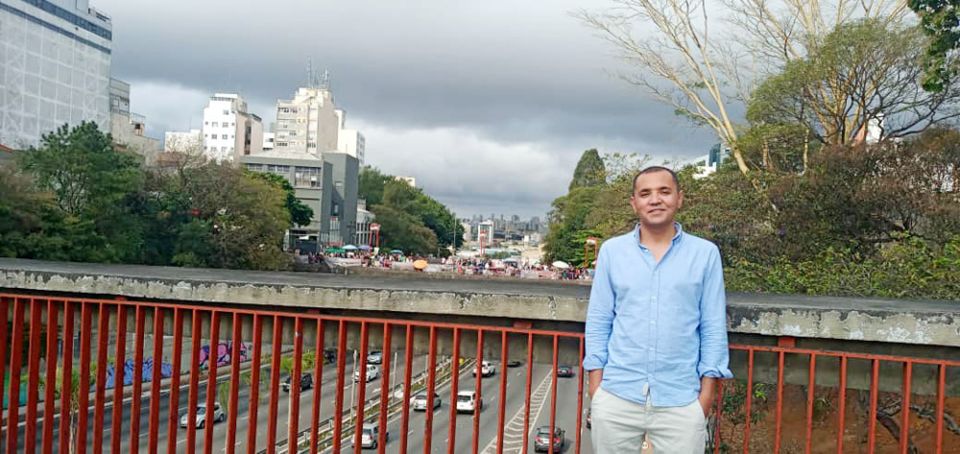
Brazil’s foreign ministry has said that more than 1,200 interviews are scheduled to happen between now and January in Islamabad, while almost 4,900 requests had been made in Tehran prior to June 13.
Barroso said that many Afghan refugees that fled to Iran after the Taliban takeover are dealing with their Iranian visas now expiring, and are looking for new places to go.
Tahira Khademi, a 27-year-old former Afghan military member now in Iran, told NCR she herself has gotten a Brazilian visa, but she is still waiting for her twin sister to obtain one.
« I used to teach other women at the military academy. The Taliban do not approve the participation of women in the armed forces, so I had to leave the country, » she told NCR.
Her brother was also in the army and ended up being arrested by the Taliban for a few days, like many Hazaras — who are persecuted not only for their ethnicity, but also due to the fact that most of them are Shiite, while the Taliban is a Sunni movement.
« He had to bribe them in order to be released, » Khademi recalled.
Mohammad Zaman Sahil, a 29-year-old engineer from the Afghan city of Ghazni, also wishes to get humanitarian visas for his family. He said he used to work at the Afghan embassy in Iran and managed to come to Brazil with his wife and two children.
« But my seven siblings and my parents are in Afghanistan in danger. One of my brothers is undocumented in Iran. I tried to discuss his case with the Brazilian embassy, but I could not do anything for him, » he told NCR.
Sahil has been helped by Abuna, a nongovernmental organization connected to Protestant missionaries, and has been living at the house of a Brazilian family in Maringá, in Paraná State.
« They are very good people and they have been helping me a lot. I love them and I love Brazilians in general. But it is not easy to live in Brazil, » he said.
Advertisement
Advertisement
Sahil said that learning Portuguese is often difficult for Afghans — and the language barrier stops them from getting a job.
Rosemeire Casagrande, a Scalabrinian lay missionary who works at Mission Peace, a Scalabrinian-run center for immigrants in São Paulo, said the lack of work opportunities for Afghans in Brazil leads many of them to plan to move to the United States or Canada — something they do in dangerous conditions through a land route that goes from Peru through Central America and Mexico.
« They tell us that they need to send money to their families in Afghanistan, so there is no other way. In Brazil, if a refugee gets a minimum-wage job, that person can barely survive here, » she said.
Casagrande emphasized that many Afghan refugees are highly qualified professionals who could contribute to the Brazilian economy. But often they have trouble validating their diplomas or university credentials.
Casagrande argued that the Brazilian government should do a better job to support refugees, and offer them shelter.
One of the current efforts of São Paulo’s Caritas network is to help Afghan refugees build a sense of community in the city. The organization hired a Hazara woman to serve as a cultural mediator, something that required some refugees to deal with deeply rooted prejudices.
Marostica, the network’s director, said one non-Hazara Afghan family refused to speak with the mediator upon arrival in Brazil.
« They said they would not talk to a woman, especially to a Hazara woman who is Shia, » said the priest. « But here they have to work together, there is no way around it. »
Sorab Kohkan, a 65-year-old Hazara immigrant who has been living in São Paulo for more than 10 years, said Brazil is a good place for his people, despite the language barrier and the economic hardships.
« Here we can walk freely. Nobody will bother us due to the shape of our eyes or because our heads are not covered, » he told NCR.
Kohkan runs a small Afghan and Indian restaurant in Liberdade, a neighborhood where thousands of Asian immigrants and their descendants, including a large Japanese Brazilian population, live and work.
« If the Japanese are totally integrated to Brazilian society, Hazara can also do it, » he said. « Here, nobody will kill us. »